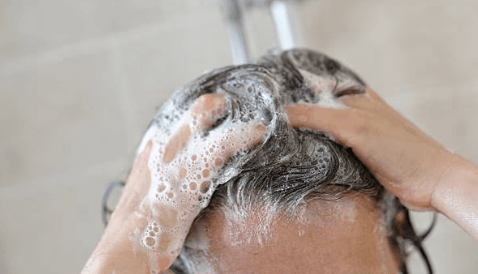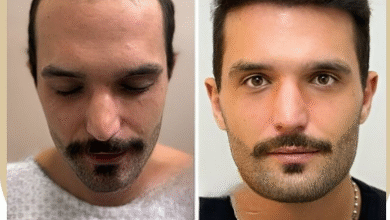wellhealthorganic.com/know-the-causes-of-white-hair-and-easy-ways-to-prevent-it-naturally

Introduction
White hair is often considered a sign of wisdom and experience, but it can also be a source of anxiety for those who are experiencing premature graying. While some embrace their silver strands, others seek to hide or reverse the effects of aging on their hair. But have you ever wondered why our hair turns white in the first place? Is it just a natural part of getting older, or are there underlying factors at play? In this blog post, we’ll dive into the science behind white hair and explore some possible solutions for those looking to maintain their youthful locks. So sit back, grab wellhealthorganic.com/know-the-causes-of-white-hair-and-easy-ways-to-prevent-it-naturally!
What Causes wellhealthorganic.com/know-the-causes-of-white-hair-and-easy-ways-to-prevent-it-naturally
As people age, their hair follicles gradually produce less melanin, the pigment that gives hair its color. When the follicles produce very little melanin, the result is white hair.
There are a number of other factors that can contribute to white hair, including certain medical conditions and illnesses, exposure to certain chemicals or drugs, and damage to the hair follicle. In some cases, white hair may be an early sign of an underlying health condition.
If you’re concerned about your white hair, talk to your doctor. They can perform a physical examination and order tests to rule out any underlying health conditions.
Is White Hair a Sign of Aging?
As we age, our hair follicles produce less melanin, the pigment that gives hair its color. When follicles produce less melanin, the new hairs that grow in are lighter in color — and eventually turn white.
White hair is not a sign of aging per se, but rather a reflection of the gradual loss of pigment cells in the hair follicle. This process is called graying. It’s important to note that not everyone will experience graying at the same age or rate. Some wellhealthorganic.com/know-the-causes-of-white-hair-and-easy-ways-to-prevent-it-naturally, while others may not notice any change until they’re well into their 50s or 60s.
There are a few things that can influence when you start to gray. One is genetics. If your parents or grandparents started graying early, you may be more likely to do so as well. Another factor is lifestyle choices. Smoking has been linked to premature graying, so if you want to keep your hair its original color for as long as possible, it’s best to avoid cigarettes.
If you’re starting to see more white hairs than usual and it’s bothering you, there are a few things you can do. You could try using a root touch-up product to temporarily cover up the grays. Or, if you’re ready to embrace your new look, you could get a stylish haircut or try some fun highlights. Ultimately, though,
Prevention and Treatment of White Hair:
There are a few things that can be done to prevent or treat white hair. First, avoid stress and follow a healthy lifestyle. Eating a balanced diet and getting enough sleep are important for maintaining healthy hair. Secondly, use products that are specifically designed to prevent or treat white hair. These products often contain ingredients like biotin, keratin, and vitamins B and C. Third, consider using treatments like low-level laser therapy or microneedling. Finally, consult a dermatologist if you have any concerns about your hair health.
When to See a Doctor
When it comes to your hair, you probably don’t give much thought to the science behind it. But understanding the science behind white hair can help you better understand the causes and solutions. Here’s a closer look at the science behind white hair:
The Science Behind White Hair:
Your hair is made up of pigment cells called melanocytes. These cells produce a pigment called melanin, which gives your hair its color. As you age, the number of pigment cells in your hair follicles decreases. This causes your hair to lose color and eventually turn white.
There are several other factors that can contribute to the premature graying of your hair, including:
Hormonal changes: Hormonal changes can interfere with the production of melanin, causing your hair to lose color.
Stress: Stress can cause your body to produce fewer pigment cells.
Smoking: Smoking damages the DNA of melanocytes, which can lead to fewer pigment cells and gray hair.
Medical conditions: Certain medical conditions, such as vitiligo and alopecia areata, can also cause premature graying.
Conclusion
The causes of white hair can be complex and varied, but understanding the science behind it can help us find solutions. With proper diet and lifestyle changes, as well as supplements and treatments, we have options to help preserve our natural color or even prevent premature graying. Ultimately, it’s important to maintain a healthy lifestyle while keeping stress levels low in order to keep your hair looking its best for years to come.





